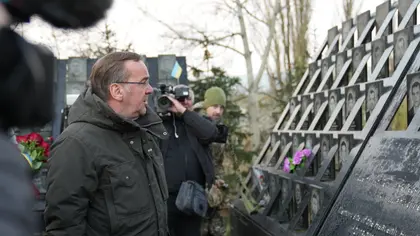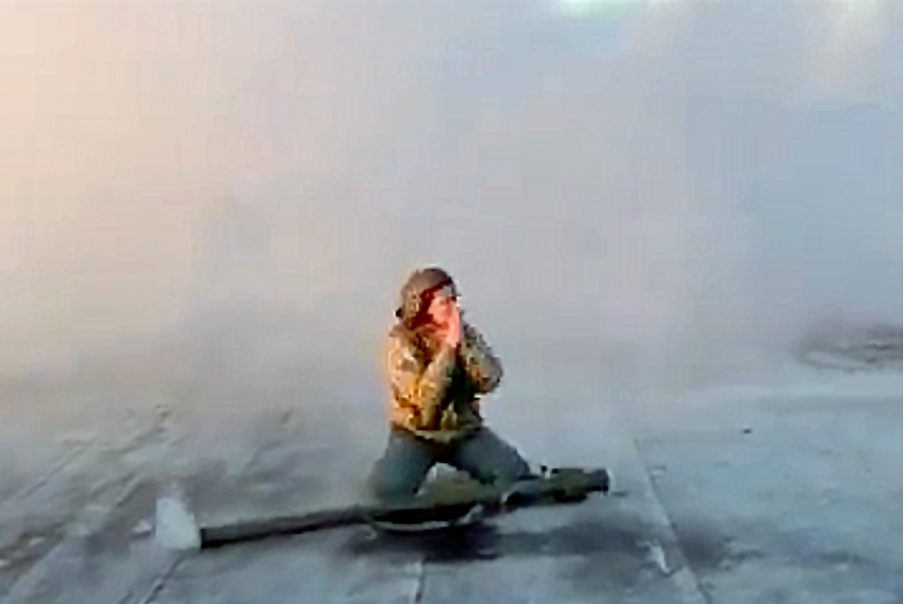Germany’s defense minister arrived in Kyiv on Tuesday morning in a surprise visit to reaffirm Berlin’s support for Ukraine’s fight against Russia’s full-scale invasion.
Boris Pistorius made the trip by train, pulling into the capital on the 10th anniversary of the start of the Revolution of Dignity.
JOIN US ON TELEGRAM
Follow our coverage of the war on the @Kyivpost_official.
His first stop was to lay flowers at the memorial for those killed.
Pistorius is due to hold talks with his Ukrainian counterpart as well as President Volodymyr Zelensky.
Berlin, the second-biggest supplier of military assistance to Kyiv after the United States, is seeking to offer reassurances after the shift in focus to the Middle East war prompted concerns about waning support for Ukraine, AFP reports.
Later on Tuesday, EU chief Charles Michel also made an unannounced visit to Kyiv.
"Good to be back in Kyiv, among friends," the president of the European Council posted on social media, alongside a picture of him descending from a train.
Belarusian opposition leader, Sviatlana Tsikhanouskaya, also sent a message of support to mark the anniversary.
The visits come after an increase in Russian air attacks on Ukraine and as Kyiv braces for an expected rise in strikes on the country's energy facilities over the coming winter months.
It is Pistorius's second visit to Kyiv since he became defence minister at the start of this year, and it comes a day after US Defence Secretary Lloyd Austin made an unannounced trip to Ukraine.

Ukraine Fires First Long-Range US Missiles into Russia, Kremlin Vows Response
As well as political talks, Pistorius will take part in a wreath-laying ceremony at Kyiv's Maidan square and visit a military training centre.
After some initial hesitation, Germany drastically ramped up its support for Ukraine in the wake of Russia's full-scale invasion and has delivered a huge array of armaments to Kyiv, ranging from heavy battle tanks to air defence systems and ammunition.
The war has also spurred the government to embark on an overhaul of the country's creaking military, with Chancellor Olaf Scholz unveiling a 100-billion-euro ($109-billion) fund to boost the armed forces.
Haunted by guilt over its role in World War II, successive governments had considered the armed forces a low priority, and it suffered from years of neglect.
Since the outbreak of the Israel-Hamas war, Germany has offered strong support to Israel in its fight against the Palestinian militants.
But Scholz pledged last month Germany would still maintain its aid to Kyiv, insisting that "we will support Ukraine as long as necessary".
You can also highlight the text and press Ctrl + Enter






